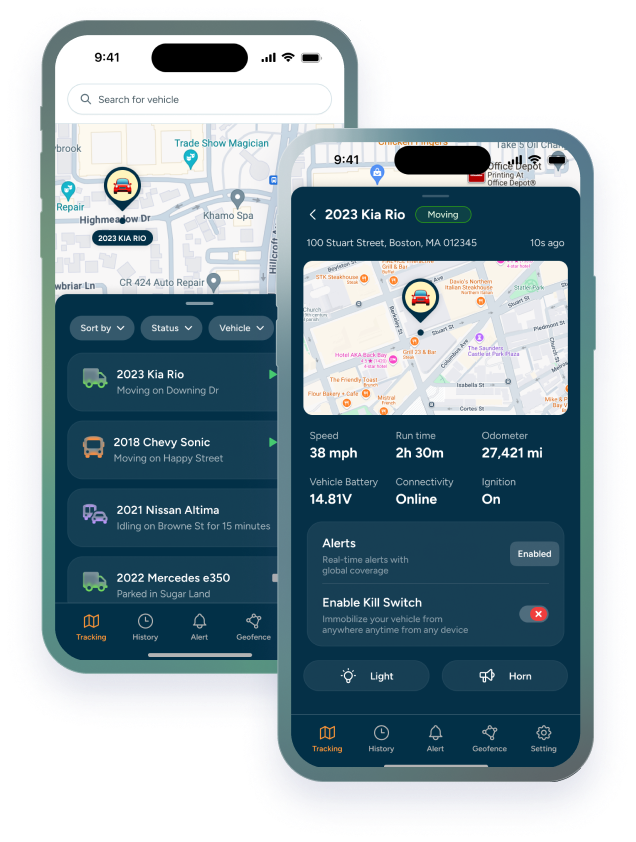In the rapidly evolving fleet industry, managing a fleet effectively demands more than just overseeing a group of vehicles. It requires a meticulous approach to driver safety, vehicle maintenance, and optimizing operational efficiency. Today, fleet managers are turning to advanced fleet management systems and software to achieve these goals, ensuring their fleet operations are as efficient and cost-effective as possible.
The Cornerstone of Fleet Operations: Fleet Management Software
Fleet management software has become the cornerstone of modern fleet operations, offering everything you need to monitor and manage your fleet vehicles. With capabilities ranging from vehicle tracking to fuel management, this software can save companies significant amounts of money by optimizing fuel consumption and enhancing the overall management of fleet vehicles. Fleet managers can leverage these tools to monitor vehicle health, driver performance, and ensure preventive maintenance is conducted timely, preventing potential issues and extending the lifespan of the vehicle fleet.
Key Features and Best Practices
Utilizing fleet management software effectively requires understanding its key features and best practices. These systems provide comprehensive tools for route planning, driver behavior monitoring, and fleet tracking, all designed to improve driver safety and reduce costs. For instance, fuel management functionalities not only track fuel usage but also help identify ways to make operations more fuel-efficient.
Moreover, ensuring your fleet adheres to the best practices in vehicle acquisition, fleet maintenance, and management is essential for success. This includes implementing driver training programs to improve driver behavior and performance, ultimately leading to safer and more efficient fleet operations.
The Role of Data in Fleet Management
One of the most significant benefits of fleet management systems is the wealth of data they provide. Fleet managers can analyze this data to gain insights into fuel costs, vehicle utilization, and driver efficiency, making informed decisions to manage the fleet more effectively. This data-driven approach allows for more strategic route planning, better management of fuel consumption, and optimization of the entire fleet’s operational efficiency.
Vehicle Maintenance and Driver Safety
A crucial aspect of managing a fleet is ensuring regular vehicle maintenance and prioritizing driver safety. Fleet management software can facilitate preventive maintenance schedules, ensuring that each commercial vehicle in your fleet receives timely care, reducing downtime and repair costs. Additionally, focusing on driver safety through continuous monitoring and training can significantly reduce the risk of accidents and enhance the overall safety of fleet operations.
The Future of Fleet Management
As the fleet industry continues to evolve, so do the technologies and strategies employed by fleet management companies. Innovations in vehicle tracking, fuel management, and driver performance analytics are shaping the future of how fleets are managed. Fleet managers need to stay abreast of these developments to manage their fleets effectively, ensuring they are leveraging the latest technologies to their advantage.
The integration of telematics and IoT devices in commercial fleet vehicles has opened new avenues for real-time monitoring and management, offering unprecedented visibility into every aspect of fleet operations. This, combined with AI and machine learning algorithms, is paving the way for predictive analytics in fleet management, allowing managers to anticipate issues before they occur, optimizing fleet efficiency, and reducing operational costs.
Conclusion: Maximizing Efficiency and Safety
Effective fleet management is paramount in ensuring operational efficiency, safety, and profitability. By embracing fleet management software and adhering to management best practices, fleet managers can significantly improve the performance of their fleet operations. From enhancing driver safety and vehicle maintenance to optimizing route planning and fuel usage, the right strategies and technologies can transform the way fleets are managed.
In an industry where every detail counts, ensuring your fleet management practices are up to date is not just beneficial—it’s essential. As we look to the future, the role of advanced technologies in driving the efficiency and sustainability of fleet operations will only grow, marking an exciting era for fleet management companies, especially those in sectors like food and beverage, where the efficient management of fleet vehicles is critical to business success.
For fleet managers looking to stay ahead in the game, embracing these innovations and continuously seeking ways to improve fleet management is the key to achieving operational excellence. Whether you’re managing a fleet of cars, trucks, or any commercial vehicle, remember, the goal is not just to manage your fleet but to do so in a way that enhances its value and contribution to your organization’s success.
